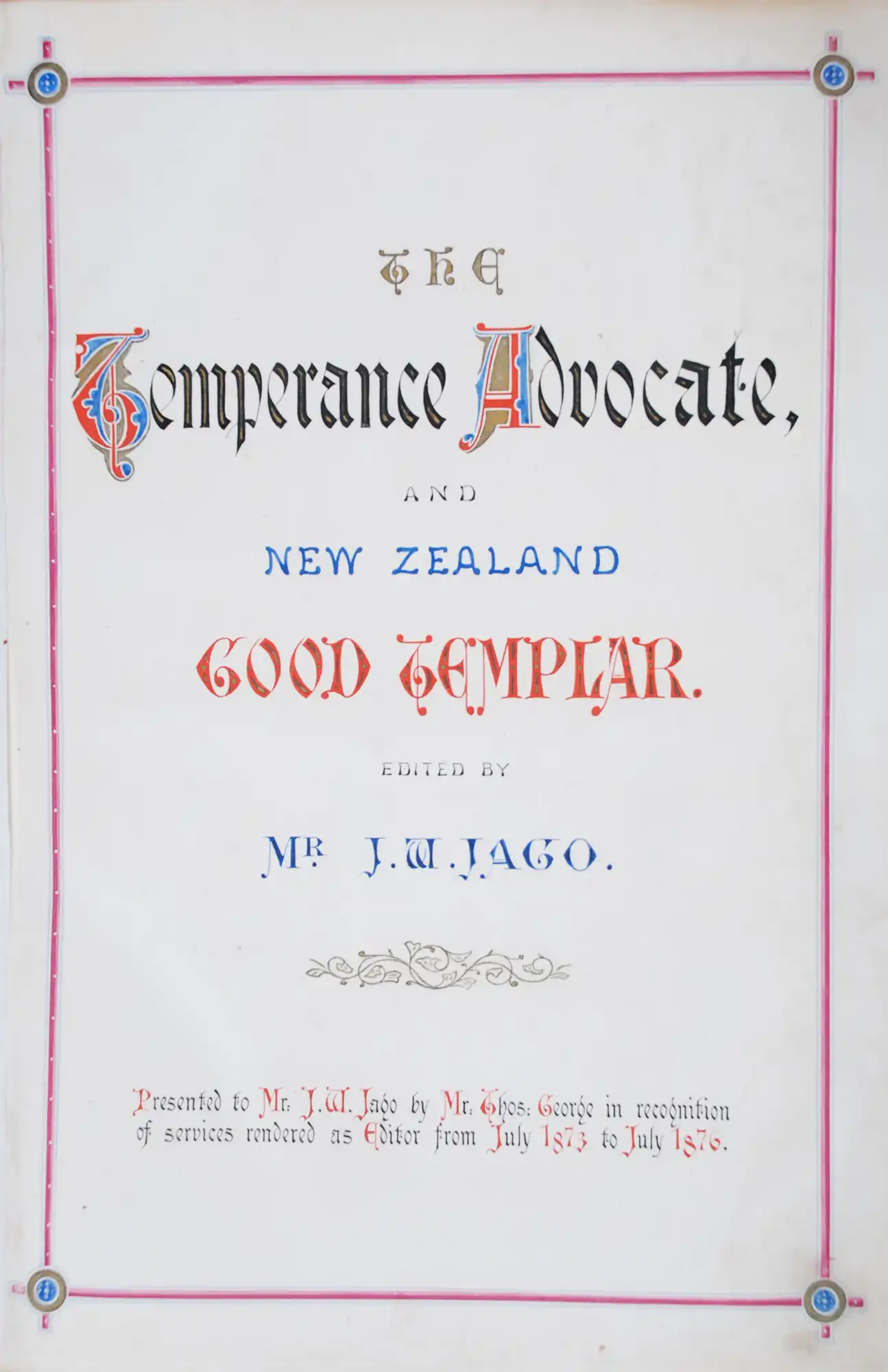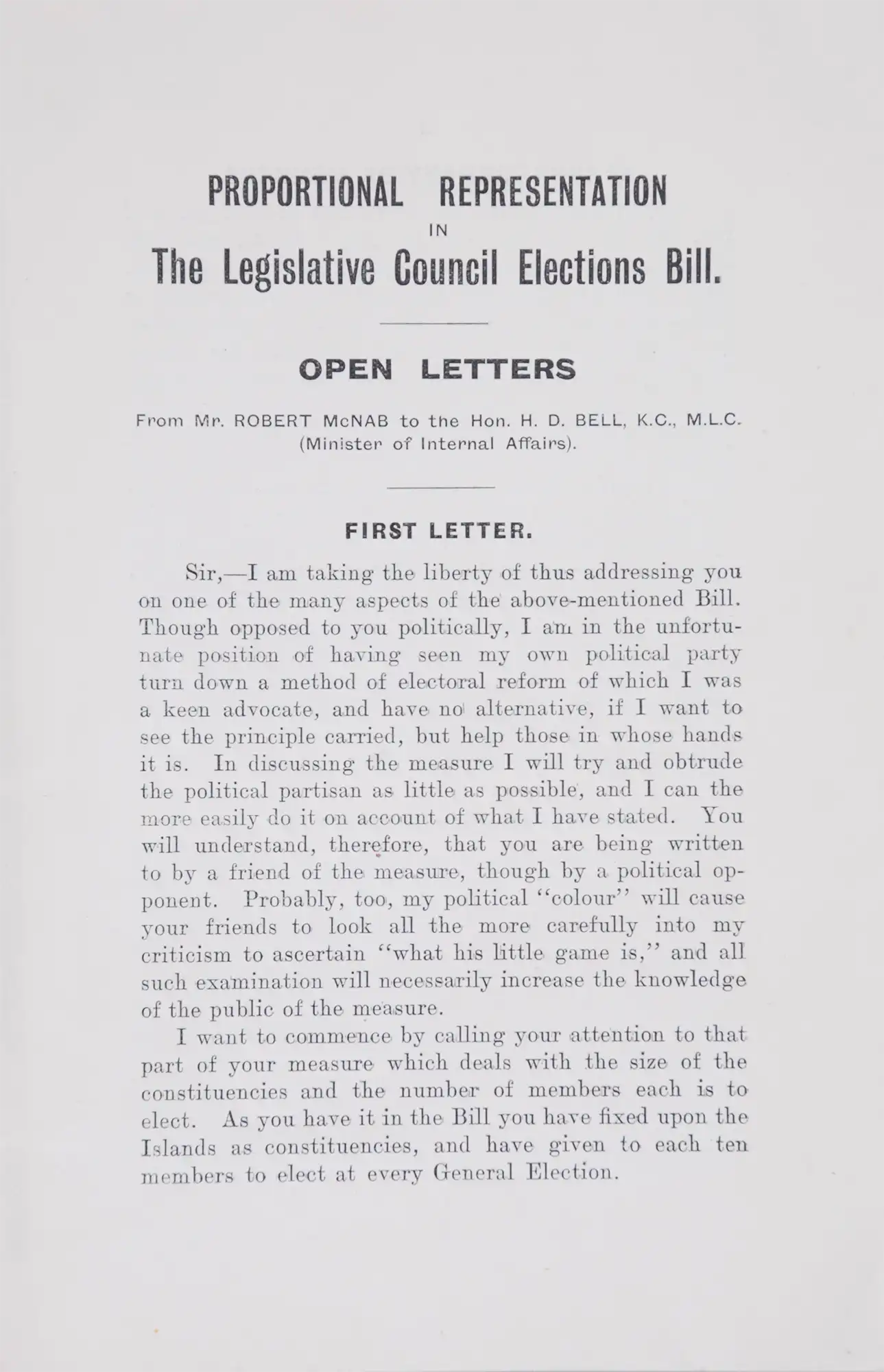Case 19
- Political connections

J. W. Jago, editor. The Temperance Advocate and New Zealand Good Templar. Vol. 1, no. 1 –vol. 3, no. 12. (1 July 1873 – 1 Jun 1876) Dunedin: T. George and J. B. McCulloch.
Robert McNab was a lifelong abstainer from alcohol and carried his temperance beliefs into Parliament, becoming the chairman of a committee of prohibitionist MPs in his first term. Frustrated with the lack of progress on temperance reform he introduced his own Licensing Act Amendment Bill in 1895 much of which was eventually incorporated into a new Government act that placed more power in the electorate to influence the sale of alcohol.
McNab's donation included complete runs of the major national newspapers, the Prohibitionist and Vanguard. Featured here is the earliest temperance newspaper in the collection, the newspaper of the Dunedin chapter of the Good Templars Lodge. The editor, John Wesley Jago, was for many years the manager of the Evening Star.

J. W. Jago, editor. The Temperance Advocate and New Zealand Good Templar. Vol. 1, no. 1 –vol. 3, no. 12. (1 July 1873 – 1 Jun 1876) Dunedin: T. George and J. B. McCulloch.
Open image in new window

Robert McNab. Open Letters on Proportional Representation. Wellington: Whitcombe & Tombs, Printers, 1913.
Alternatives to first-past-the-post voting were widely discussed in the late-19th and early 20th centuries, long before the advent of MMP in 1996. Robert McNab was a keen advocate of proportional representation as he believed it wrong that successful candidates in the first-past-the-post system often won with a minority of the total votes. McNab submitted the Absolute Majority Bill to the House in 1896 which allowed for a system of preferential voting in general electorates but his bill was eventually unsuccessful. A modification of the idea in the form of the second ballot or two-round election was used in the 1908 and 1911 elections. McNab sets forth his views in this pamphlet in dialogue with H. D. Bell (Francis Henry Dillon Bell) the leader of the Legislative Council who had proposed that members of the upper house be elected by a proportional system instead of being appointed.

Robert McNab. Open Letters on Proportional Representation. Wellington: Whitcombe & Tombs, Printers, 1913.
Open image in new window

